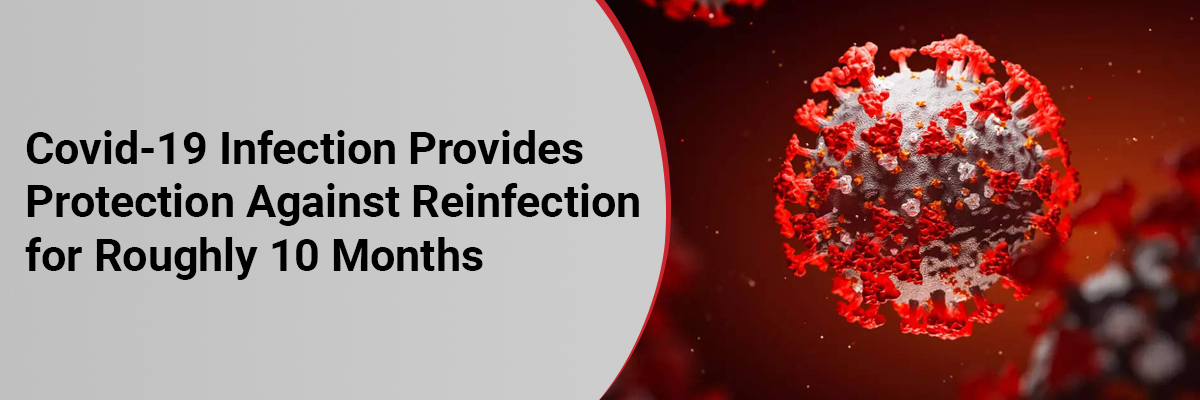
 IJCP Editorial Team
IJCP Editorial Team
Covid-19 Infection Provides Protection against Reinfection for Roughly 10 Months
According to a study published in The
Lancet on Thursday, a COVID-19 infection can protect against the symptomatic
illness for approximately 10 months and lower the risk of severe illness. In
the study, the researchers from the COVID-19 Forecasting Team at the Institute
for Health Metrics and Evaluation revealed that this study is the first and
largest review of available data on the subject.
The findings of the study showed that the immunity against all variants of coronavirus appeared to be high for ten months following a COVID-19 infection. Dr. Chris Murray, director of the Institute for Health Metrics and Evaluation at the University of Washington, revealed that unlike other viral infections, such as measles or chickenpox, protection from COVID-19 does not last forever. Hence, even those with inherent immunity will probably require an annual COVID-19 booster. However, people do not need to get shots more frequently than once a year because natural immunity lasts for a long time.
Additionally,
the researchers discovered that those who experienced any pre-Omicron
coronavirus illness had significant defences against BA infection. He noted
that the findings of the study do not suggest that people should skip a vaccine
or booster, as without vaccination, a first infection can have a substantial
risk of severe illness or death, especially in people with other comorbidities.
Furthermore, several studies have shown that a more severe illness increases
the risk of developing COVID.

IJCP Editorial Team
Comprising seasoned professionals and experts from the medical field, the IJCP editorial team is dedicated to delivering timely and accurate content and thriving to provide attention-grabbing information for the readers. What sets them apart are their diverse expertise, spanning academia, research, and clinical practice, and their dedication to upholding the highest standards of quality and integrity. With a wealth of experience and a commitment to excellence, the IJCP editorial team strives to provide valuable perspectives, the latest trends, and in-depth analyses across various medical domains, all in a way that keeps you interested and engaged.





















Please login to comment on this article